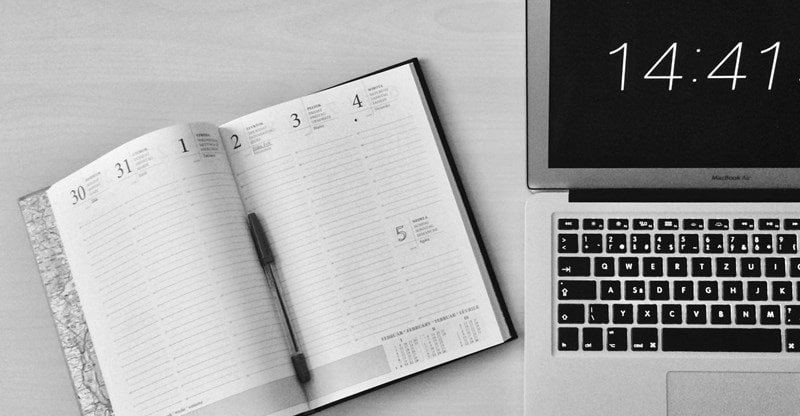Time Management Skills For Freelancers
As a freelancer, one of the most important skills you need to have is time management. You feel like you have a lot of freedom. You choose when you work, you make your own schedule, you choose your tasks. However, you might not be as productive as you’d want to be.
This is where time management comes into play. Even if you have your independence, you still need to meet your deadlines. Additionally, as a freelancer, you get paid for the amount of time you put in—so it’s important to learn freelancers time tracking and how to use your time effectively.
Make the Most of Your Time
1. Follow a Schedule
 a. Make a Reasonable To-Do List
a. Make a Reasonable To-Do List
Making a to-do list is a great way to get a grasp of all the things you want to do in a day. Having a bird’s eye view of your workload will help you get organized and plan your time accordingly.
But making your list manageable is more important than making the list itself. If you put too many things on your plate, you will end up frustrated at the end of your day when you couldn’t tick off everything on the list.
b. Prioritize
Now that you have all your tasks in one place, you need to prioritize them. Some tasks are more important than others and knowing which ones need your immediate attention can help you get organized.
To avoid feeling overworked, you can use the Eisenhower Matrix for labeling your tasks. Basically, you split your work into 2 main categories: Important activities that accomplish your own goals, and Urgent activities that accomplish other’s goals and have consequences if they aren’t done.
c. Find Your Peak Time
We all have different times when we’re most productive. Some people do most of their work early in the morning, others do more in the evening. The important thing here is to know when you’re most productive and schedule your most difficult tasks at that time.
You can do this by tracking time when you’re working. Pay attention to when you’re most productive and when you really need to just take a break. Take notes on your mood when you’re working and try to schedule your most unpleasant tasks when you can handle them.
2. Boost Your Productivity
 a. Keep It All in One Place
a. Keep It All in One Place
If you work on multiple projects and have different schedules for each, it’s good to keep it all together. You can do that by using work management platforms, like Trello or Asana.
These kinds of apps can help you with your time management skills. Keeping all of your tasks in one place helps you have everything in sight at all times. This way, you can’t forget about important tasks just because you didn’t check all of your separate lists.
b. Track Your Time
As a freelancer, you can fall into the trap of working all day. If you track your time, you can set yourself an amount of time that you want to be working and stick to it.
You can do this by using time management apps, like Timely or Toggl. They can help you prevent procrastination—they make you accountable for your time. It’s also easier to keep your billable hours in check.
c. Minimize Distractions
Chances are you’re working at home. This means that you are surrounded by distractions—those unwashed dishes, your children, your pets, or that tempting couch.
You can do this by setting up a home office. Having a separate place for work can help you do your tasks uninterrupted. And the best part is that it will be easier to disconnect at the end of the day.
d. Break Things Down
If you’re handling complicated tasks all the time, you’re prone to feeling overworked. An easy way to avoid that is by breaking your work into smaller, easier tasks.
You can also try using the Pomodoro technique. This technique splits your workday into 25-minute bursts followed by 5-minute breaks. After 4 intervals, you take a 15 minutes break.
e. Set Deadlines
Setting deadlines can help you feel grounded. Knowing that there’s a time limit on your work will make you less prone to procrastinate. This will also help you plan your day according to how long your tasks will take.
You should also try to estimate when you plan on starting the task and ending it. This will help you stay accountable to your schedule and avoid cramming in all your work right before the deadline.
3. Keep Your Sanity
 a. Dedicate Time for Relaxation
a. Dedicate Time for Relaxation
As a freelancer, one of your most feared enemies is being overworked. It’s easy to work all the time and forget about yourself during stressful times. This is why you need to set some boundaries to keep sane.
Just make sure that you get enough sleep and take breaks whenever you need one. Don’t fall into the trap of feeling guilty that you’re not always working. It’s in your best interest to have a balanced life.
b. Learn to Say No
You might be tempted to accept all the work that crosses your path. But, sometimes, your plate is full. For those times, you need to say no to extra tasks until your schedule has some openings.
If you want to have a balanced life, you need to know your limits. Be aware of how much you can handle at a time. When you feel like you have a lot going on, whether it’s personal or professional, just stick to what you already have planned.
c. Keep a Journal
How would you know your strategy is working if you don’t evaluate it? Keep track of your productivity and how you’re feeling using a journal.
If the new actions you’re taking aren’t working for you, switch them up until you find something that does. The important thing here is not to put too much pressure on yourself.
What to Keep in Mind
As a freelancer, you need good time management skills in order to have a balanced life. When you’re working from home, it’s easy to fall into the trap of feeling like you have to work all the time.
Try out different techniques and see what keeps you more productive and organized. What is important is to regularly assess how well you’re managing your schedule. If a technique isn’t working for you, perhaps it’s time to try something new.


 a. Make a Reasonable To-Do List
a. Make a Reasonable To-Do List a. Keep It All in One Place
a. Keep It All in One Place a. Dedicate Time for Relaxation
a. Dedicate Time for Relaxation
